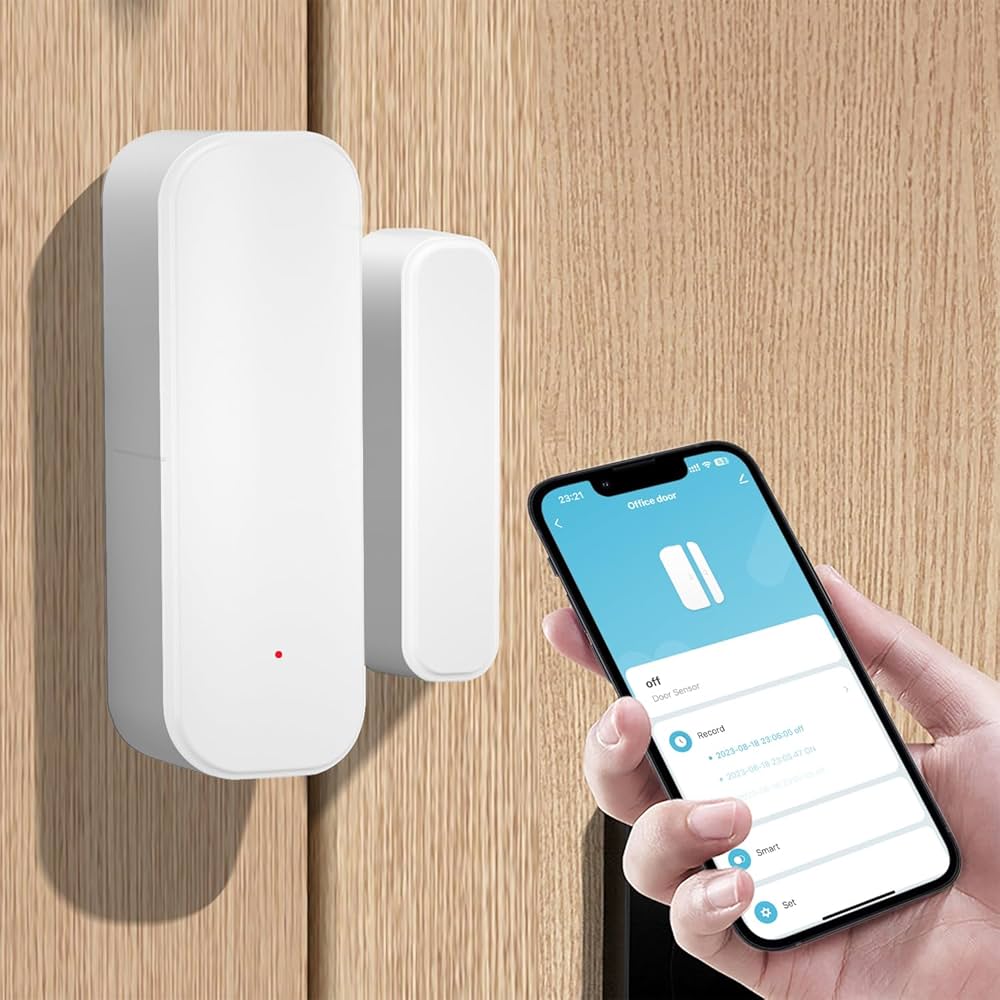Smart Door Sensor Technology: The Future of Reliable Door Monitoring

In today’s world, where technology seamlessly integrates into every aspect of our daily lives, home security has become more intelligent and advanced than ever before. One of the most significant innovations in this area is the smart door sensor, a device that ensures your entry points are monitored effectively. By combining real-time notifications, seamless integration with smart home systems, and advanced connectivity, the smart door sensor is setting new standards for safety and peace of mind.
Understanding the Role of a Smart Door Sensor
A smart door sensor is a compact device designed to detect the opening and closing of doors and sometimes even windows. Unlike traditional door alarms, which only sound when someone forces entry, these sensors provide instant alerts on smartphones or connected devices. This real-time awareness makes them invaluable for homeowners, businesses, and even rental property managers who want a constant eye on their property. A smart door sensor can serve as the first line of defense against intruders while also offering convenience for daily use, such as knowing when family members arrive home.
How Smart Door Sensors Work
The working principle of a smart door sensor is straightforward yet effective. Most sensors consist of two components: one attached to the door frame and the other to the moving part of the door. When the door opens or closes, the magnetic field or contact point changes, triggering the sensor. This action sends a signal to a connected hub or directly to a mobile app, instantly notifying the user. Advanced models also integrate with voice assistants, smart cameras, and even lighting systems, creating a fully synchronized security environment.
The Evolution of Door Monitoring Technology
Before the rise of the smart door sensor, people relied heavily on mechanical locks, chains, and simple alarm systems. While effective to an extent, these older solutions lacked the intelligence and adaptability required in modern times. The evolution of wireless connectivity and the Internet of Things (IoT) has transformed basic sensors into smart, interconnected devices capable of providing more than just alerts. A smart door sensor today can integrate with a complete home automation system, offering features such as automatic locking, light activation when the door opens, or even triggering security cameras to start recording.
Benefits of Using a Smart Door Sensor
A smart door sensor offers far more benefits than just knowing if a door is open or closed. For homeowners, it adds a crucial layer of protection by alerting them to suspicious activity, even when they are miles away. Families with children can track when kids come home from school, while business owners can monitor office entrances after hours. Beyond security, the convenience factor is undeniable. Imagine receiving a notification if you accidentally leave your door ajar or having your home lights turn on automatically when you walk in—these small details elevate the living experience significantly.
Integration with Smart Home Systems
One of the most remarkable features of the smart door sensor is its ability to integrate with broader smart home ecosystems. Whether you use platforms like Google Home, Amazon Alexa, or Apple HomeKit, these sensors can communicate seamlessly with other devices. For example, when the front door opens, your smart thermostat can adjust the temperature, or your security camera can immediately record footage. Such integration transforms the simple smart door sensor into a central piece of your home automation puzzle.
Enhanced Peace of Mind for Remote Monitoring
A major advantage of the smart door sensor lies in remote monitoring capabilities. In today’s fast-paced world, people often travel for work or leisure, leaving their homes unattended. With a smart door sensor, users can stay updated in real time about any activity at their entry points. Whether it’s a delivery person dropping off a package, a family member returning home, or an unwanted attempt to enter, the sensor ensures you’re always informed. This constant connection to your home provides unparalleled peace of mind.
The Smart Door Sensor in Business Security
While homeowners are major beneficiaries, businesses also gain significant value from adopting smart door sensor technology. Retail shops, offices, and warehouses often have multiple entry points that need monitoring. Installing smart door sensors helps track access and prevent unauthorized entries, especially after working hours. Additionally, managers can receive logs of opening and closing times, which can be useful for both security and operational efficiency. This level of monitoring ensures businesses remain protected without requiring constant on-site supervision.
Advancements in Smart Door Sensor Technology
As technology advances, the smart door sensor continues to evolve with new capabilities. Modern sensors not only detect door movements but also monitor environmental conditions such as temperature, humidity, and even vibrations. Some advanced versions use artificial intelligence to learn user habits and reduce false alerts. For instance, if the door opens at a regular time every morning, the sensor can identify this as normal behavior, avoiding unnecessary notifications. Such advancements make these devices more intelligent and reliable for long-term use.
The Role of Connectivity in Reliable Door Monitoring
Reliable door monitoring depends heavily on connectivity, and the smart door sensor thrives in this domain. Using Wi-Fi, Bluetooth, or Zigbee connections, these devices maintain strong communication with hubs or mobile apps. This connectivity ensures that users never miss a notification, regardless of their location. With cloud storage integration, many sensors also allow access to activity history, letting you review past door events when needed. The role of connectivity makes the smart door sensor not just a monitoring tool but also a data-driven solution for security.
Choosing the Right Smart Door Sensor
With the growing popularity of the smart door sensor, the market offers a wide variety of options. Choosing the right one depends on your needs, whether you want a basic model for simple alerts or an advanced version with multi-device integration. Battery life, connectivity range, and compatibility with your existing smart home system are important factors to consider. By selecting the right sensor, you can ensure your security system works smoothly and efficiently.
The Future of Smart Door Sensors
Looking ahead, the smart door sensor is poised to become even more advanced, incorporating AI-driven analytics, biometric recognition, and energy-efficient designs. Future models may even integrate with drones or robotic systems to provide real-time video monitoring the moment the door is triggered. As technology progresses, these sensors will continue to play a vital role in making homes and businesses safer, smarter, and more connected.
Conclusion
The smart door sensor is more than just a modern gadget—it is the future of reliable door monitoring. With features like real-time alerts, seamless smart home integration, and advanced connectivity, it empowers users to take control of their security like never before. Whether for personal residences or business spaces, a smart door sensor ensures that you remain connected and informed at all times. As innovations continue to shape this technology, its importance in safeguarding modern living will only grow stronger, making it an indispensable part of home and business security for years to come.




